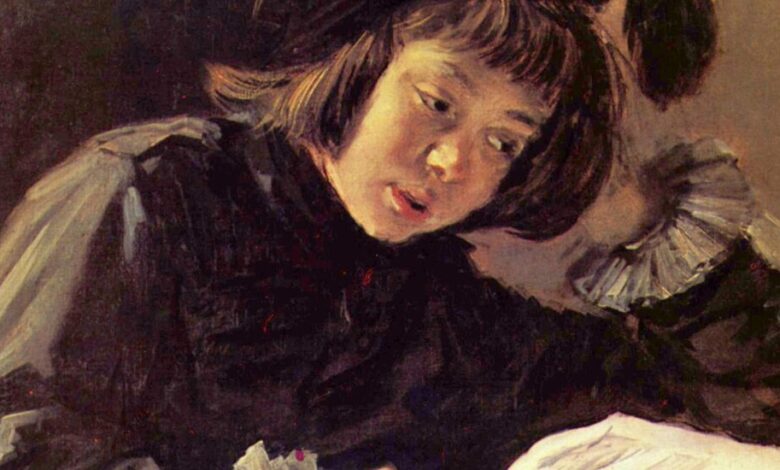Child’s Play – The New York Times

Dear readers,
“My mind, as is so often the case these days, was totally blank.” — Jean Shepherd
The year I turned 17, I went around telling everyone I was having my “coming-of-age summer,” because it was an expression I loathed (with its patronizing overtones of sexual awakening) and because I feared if I didn’t say it, someone else might. After all, my summer itinerary contained many of the classic Y.A. elements: new environs, different people, a growth spurt. And, naturally, everyone I encountered was thinking only of me and my hero’s journey.
In the event, I didn’t have much to show for it besides a disastrous at-home haircut, a brown paper bag of waitressing tips and the short-lived friendship of a would-be classics professor who had briefly dropped out of school to follow the Dave Matthews Band. Oh, and I did a lot of reading. Mutatis mutandis.
Here are some summer break recommendations.
—Sadie Stein
If you’re a New Yorker of a certain age, you’ll know Jean Shepherd as a cult radio host, yarn-spinner and enigmatic prankster whose tagline — “Excelsior, you fathead!” — was the rallying cry for a generation of irreverent youth. In one famous hoax, Shepherd collaborated with his listeners to invent a historical novel called “I, Libertine,” by a Frederick R. Ewing. His fans hyped the nonexistent book so relentlessly that it became a literary sensation. (Ultimately, he and Theodore Sturgeon actually wrote it.)
To everyone else, Shepherd is the narrating voice of “A Christmas Story,” based on fictionalized accounts of his Indiana childhood. At this point, the leg lamp and the bunny suit may be pop-culture clichés, but despite all those basic cable marathons Shepherd’s work retains its sweet-tart pleasure. Initially hesitant to put his stories down in writing, Shepherd was persuaded by his friend Shel Silverstein to try. “In God We Trust, All Others Pay Cash” is the result, and was a best seller. The episodic novel contains the seedlings of “A Christmas Story” and a number of other essays; it’s also chock-full of writing so sharp and funny, images so apt and weird, that you mourn for the 10 “Christmas Stories” that might have been and clutch these written ones close like an unexpected cache of treasure.
Read if you like: “I, Libertine” “A Christmas Story,” “Goodbye, Columbus,” “This American Life”
Available from: A good bookstore or well-stocked library
“On and off, all that hot French August, we made ourselves ill from eating the greengages…” A very different coming-of-age story indeed, Godden’s novel is told from the perspective of 13-year-old Cecil Grey, left to her own devices with her four siblings at a crumbling house in the Champagne country after their mother falls ill. They become enmeshed with the lives of the hotel’s proprietress, Mademoiselle Zizi, her lover (a charming Englishman named Eliot) and the various personae of the household. The eldest of the siblings, 16-year-old Joss, is newly mature and feeling her power; the adult reader sees the dangers and predations that surround her.
What starts as a languorous childhood idyll grows inexorably taut and menacing. Godden has an uncanny knack for matching restraint and luridness; here, Cecil’s precocious but believably childlike narration contrasts with the corruption that surrounds her. Although it was published in the 1950s and set not long after World War I, the book feels fresh: Matters of sex and queerness are treated with matter-of-factness and the prose is sharp and clear.
Read if you like: “The Go-Between,” “A Tree Grows in Brooklyn,” “Demon Copperhead,” Colette, plums.
Available from: A good used bookstore or well-stocked library
Why don’t you …
-
Beware of children? All this coming-of-age reminds me of a quote from the great Jun’ichirō Tanizaki’s novel “Some Prefer Nettles,” a serial completed in 1929: “Children retain a great deal, and when they grow up they start going over things and rejudging them from a grown-up’s point of view. This must have been this way, and that was that way, they say. That’s why you have to be careful with children — some day they grow up.”
-
Name with care? The other day, I retrieved from a Little Free Library a baby-naming book that came out nearly two decades ago. Reader, I was enthralled. In addition to the usual roster of Jakes and Madisons, this book contained lists of names for “Forensic Scientists,” “Sailors,” “Poets,” “The In-Crowd,” “Dorks,” “Barflies” and, yes, “Editors.” All of which is to say, a book is a treasure and an oddity and a time capsule and never pass a free one by without a thorough investigation.
-
Let it all out? Zora Neale Hurston’s 1942 memoir “Dust Tracks on a Road” may not stand up to the most rigorous fact-checking; it may or may not shave 10 years off the author’s age. But no one can deny that it contains moments about childhood and art, anthropological fieldwork and identity and fame that are so slyly subversive and vivid that everyone should read it, at least once — preferably in the newer, unexpurgated versions. Some lines will be companions for life. Just one: “There is no agony like bearing an untold story inside you.”
Thank you for being a subscriber
Plunge further into books at The New York Times or our reading recommendations.
If you’re enjoying what you’re reading, please consider recommending it to others. They can sign up here. Browse all of our subscriber-only newsletters here.
Friendly reminder: check your local library for books! Many libraries allow you to reserve copies online. Send newsletter feedback to [email protected].
